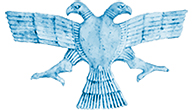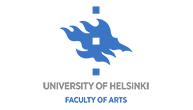Proto-Indo-European Lexicon
The generative etymological dictionary of Indo-European languages
The Proto-Indo-European Phoneme Inventory
© 2014-2026 University of Helsinki
"Durch zweier Zeugen Mund wird alle Wahrheit kund" — August Fick(PRINCIPLE of POSTULATION)
PIE
PIE √o- (pron.) ‘dieser’
√o-
(Pyysalo)
1. PIE *o·
PIE *o → a
Change of *o into a
Ro›a → Hitt. a·
1. PIE *o·
PIE *o → a
Change of *o into a
Ro›a → Pal. a·
1. PIE *o·Σ
PIE *o → a
Change of *o into a
Ro›a → *a·Σ
2. a·Σ
*a → o
Change of *a into o
Ra›o → ORuss. o·Σ
√oni-
(HEG A:29)
(HW2 A:81, HIL. 209-10)
Hitt. a·ni-
(dem.pron.) ‘jener: [IŠ-TU AN-NI-I]Š: GÚ.R[I.TA]’
(HEG A:29-30)
(Hitt. an-ni-iš, KBo 1.42 iii 33)
1. PIE *o·ni-
PIE *o → a
Change of *o into a
Ro›a → Hitt. a·ni-
1. PIE *o·ni·son
PIE *o → a
Change of *o into a
Ro›a → *a·ni·san
2. a·ni·san
PIE *s → š
Orthographic change of *s into š
Rs›š → Hitt. a·ni·šan
(Pyysalo 2013:XX)
PIE √o- (pref.) ‘zu-, er-, dar-, hin-’ (suff.) ‘allativum’
√o·
(Pyysalo)
1. PIE *o·smo
PIE *o → a
Change of *o into a
Ro›a → *a·sma
2. a·sma
PIE *s → š
Orthographic change of *s into š
Rs›š → Hitt. a·šma
(Pyysalo 2013:XX)
1. PIE *ó·bɑɦso-
PIE *ɑ → Ø
Loss of *ɑ
Rɑ›0 → *ó·bɦso-
(SPIE §2.2.4)
2. ó·bɦso-
*bɦ → ph
Loss of voice of media aspirata *bɦ
Rbɦ›ph → *ó·phso-
3. ó·phso-
*phs → ps
Loss of *h between *p and *s
Rphs›ps → *ó·pso-
4. ó·pso-
Change from Latin to Greek alphabet
RLat›Gr → Gr. ὄ·ψο-
1. PIE *o·dɑɦi̯u-
PIE *ɑ → Ø
Loss of *ɑ
Rɑ›0 → *o·dɦi̯u-
(SPIE §2.2.4)
2. o·dɦi̯u-
PIE *o → a
Change of *o into a
Ro›a → *a·dɦi̯u-
3. a·dɦi̯u-
*dɦ → d
Loss of *ɦ in media aspirata *dɦ
Rdɦ›d → *a·di̯u-
(SPIE §4.8.1.5)
4. a·di̯u-
*adi → aidi
Anaptyxis of *i
RadI›aidI → *a·idi̯u-
5. a·idi̯u-
i̯ → y
Orthographic change of i̯ into y
Ri̯›y → gAv. a·idyu-
1. PIE *o·Σ
PIE *o → a
Change of *o into a
Ro›a → TochA. a·Σ
1. PIE *o·ki̯os-
PIE *ki/i̯ → ć
1st palatalization of *ki/i̯
RkI›ć → *o·ćos-
(SPIE §4.8.4)
2. o·ćos-
PIE *o → a
Change of *o into a
Ro›a → *a·ćas-
3. a·ćas-
*s → h
Change *s into h
Rs›hRestr → *a·ćah-
4. a·ćah-
*ć → s
From Satem *ć to s
Rć›s → LAv. a·sah-
(SPIE §4.8.1.9)
1. PIE *o·molo
PIE *o → a
Change of *o into a
Ro›a → *a·mala
2. a·mala
*-a → Ø
Loss of root-final -a
R=a›=0 → Goth. a·mal
1. PIE *o·molo·Σ
PIE *o → a
Change of *o into a
Ro›a → Goth. a·mala·Σ
Gr. ὀ·ρέγο-
(pr.) ‘(die Hand) zu erreichen suchen, hinstrecken, darreichen, sich strecken’
(Gr. ὀρέγω)
1. PIE *o·réɦɑgi̯o-
PIE *ɑ → Ø
Loss of *ɑ
Rɑ›0 → *o·réɦgi̯o-
(SPIE §2.2.4)
2. o·réɦgi̯o-
PIE *gi/i̯ → g
Palatovelarization of *gi/i̯ into ǵ
RgI›ǵ → *o·réɦǵo-
(SPIE §4.8.4)
3. o·réɦǵo-
PIE *ɦ → Ø
Loss of segmental *ɦ
Rɦ›0 → *o·réǵo-
(SPIE §2.1.4)
4. o·réǵo-
PIE *ǵ → g
Depalatalization of Centum *ǵ
Rǵ›g → *o·régo-
(SPIE §4.8.4)
5. o·régo-
Change from Latin to Greek alphabet
RLat›Gr → Gr. ὀ·ρέγο-
1. PIE *o·reɦɑgi̯u-
PIE *ɑ → Ø
Loss of *ɑ
Rɑ›0 → *o·reɦgi̯u-
(SPIE §2.2.4)
2. o·reɦgi̯u-
PIE *gi/i̯ → j́
1st palatalization of *gi/i̯
RgI›j́ → *o·reɦj́u-
(SPIE §4.8.4)
3. o·reɦj́u-
PIE *o → a
Change of *o into a
Ro›a → *a·reɦj́u-
4. a·reɦj́u-
PIE *ɦ → Ø
Loss of segmental *ɦ
Rɦ›0 → *a·rej́u-
(SPIE §2.1.4)
5. a·rej́u-
*j́ → z
From Satem *j́ to z
Rj́›z → *a·rezu-
(SPIE §4.8.1.9)
6. a·rezu-
*e → a
Change of *e into a
Re›a → *a·razu-
7. a·razu-
*u → w
Orthographic change of *u into w
Ru›w → *a·razw-
8. a·razw-
*a → '
Orthographic change of *a into '
Ra›' → Oss. '·r'zw-
√·o
(Pedersen HiuA 29)
1. PIE *·o
PIE *o → a
Change of *o into a
Ro›a → Hitt. ·a
1. PIE *.o
Change from Latin to Greek alphabet
RLat›Gr → Gr. .ο
1. PIE *·o
PIE *o → a
Change of *o into a
Ro›a → RV. ·a
1. PIE *·o
PIE *o → a
Change of *o into a
Ro›a → LAv. ·a
PIE √o- ‘horse, bird, eagle’ (as OLith. ešva- (f.) ‘Stute’ and Lith. ded·ešvà- (f.) ‘Vogelwicke’)
√o-
PIE √ō- (vb.) ‘machen’ (sb.) ‘Arm, Macht, Kraft’ (suff.) ‘Instrumental’
√ō-
HLu. ā-
(vb.) ‘do, celebrate, make’
(CHLu. 10.19.2)
(HLu. á-ha [1sg], HLu. á-wa/i-’ [10.19.5])
1. PIE *ō-
PIE *ō → ā
Change of *ō into ā
Rō›ā → HLu. ā-
1. PIE *ō-
PIE *ō → ā
Change of *ō into ā
Rō›ā → CLu. ā-
1. PIE *ō-
PIE *ō → ā
Change of *ō into ā
Rō›ā → *ā-
2. ā-
*ā → a
Change of *ā into a
Rā›a → LycA. a-
Lith. ·uo-
(end.sgI) ‘the (thematic) instrumental ending’
(Senn 1:108)
(Lith. ·u [sgI], ·uo·ju [sgI+def.])
1. PIE *·ō-
*ō → uo
Change of ō into uo
Rō›uo → Lith. ·uo-
 The PIE Lexicon Project licenses its data, linguistic results and finite-state encoded rules under a Creative Commons Attribution-ShareAlike (CC BY-SA) license.
The PIE Lexicon Project licenses its data, linguistic results and finite-state encoded rules under a Creative Commons Attribution-ShareAlike (CC BY-SA) license.

